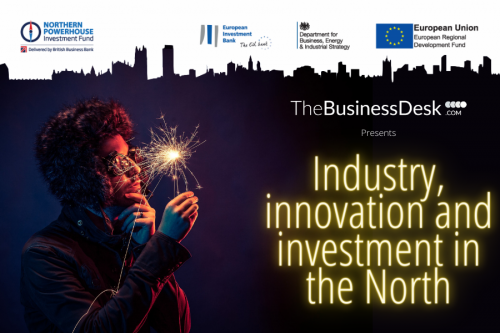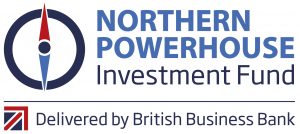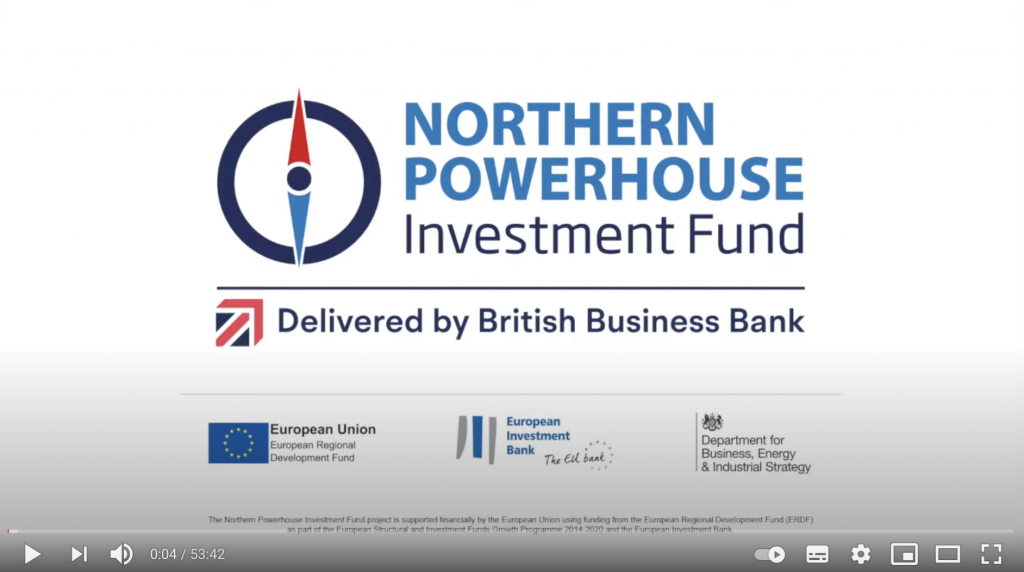Industry, innovation and investment in the North

More devolved funding, acceptance that some businesses will fail before they succeed and better execution by policy makers were among the ideas put forward at the “Industry, innovation and investment in the North” webinar.
It was one of a series of events which The Northern Powerhouse Investment Fund (NPIF), in partnership with TheBusinessDesk.com, is holding to examine funding options available to entrepreneurs across the North.
The £500m Northern Powerhouse Investment Fund was established in 2017, with the ambition to transform the funding landscape across the North of England and help to create economic prosperity on par with London and the South East.
To date, NPIF has directly invested more than £221m, in deals that have attracted an additional £242m of investment from the private sector.
Last Thursday’s webinar was chaired by Ben Ormsby, editor of TheBusinessDesk.com’s Yorkshire region.
Attendees heard from two business leaders, Dr Natalie Kenny of BioGrad Diagnostics and Chris Yates CEO of Abingdon Health, two companies that invested in innovation to survive and thrive during 2020.
Other panellists included Roger Marsh OBE DL, chair of Leeds City Region Enterprise Partnership, the NP11 and the NPIF Strategic Oversight Board, Joanne Whitfield, fund director, NPIF – FW Capital Debt Finance, and Grant Peggie, director at British Business Bank.
Speakers were asked what sort of problems northern business leaders are contending with when seeking investment, innovation and growth for their enterprises.
Yates said most venture capitalists are based in London, but stressed this is not an insurmountable problem for the North.

Chris Yates
He added: “Most VCs and private equity firms have tapped into local networks, accountants and lawyers.
“So I would definitely urge people to speak to their accountants and lawyers because they are a great way of finding the right sources of funding.
“And I think initiatives like NPIF have helped – on a personal basis it’s significantly helped our business move forward.”
Kenny said challenges faced by Northern companies were actually not that different from those in the “Golden Triangle” of London, Oxford and Cambridge.
She said: “Sometimes we have really great innovators that just don’t necessarily know there is capacity to commercialise.
“But we are now seeing a massive difference. Just driving around the North you can see innovation centres popping up everywhere and we do have small start-ups popping up.
“It might look like they’re moving out of the central city region, so we maybe don’t count that as a success. But they’re moving out because they’re buying their own facilities and they’ve got millions of pounds of Government funding.”
The massive impact of Covid-19 inevitably raised its head during the discussion, though Peggie said he was impressed by how quickly and flexible businesses had responded.
He pointed out these companies hold the key to repairing the damage inflicted by the pandemic.
He said: “What we have seen is the businesses that we’re supporting through NPIF, who are innovating, are much more likely to move into new markets and export.
“And that doesn’t just mean doing business in the European Union, but doing business globally. And I think that’s going to be key for the North as we rebuild the economy and look forward.”

Roger Marsh
Members of the panel were asked what advice they would give to business owners tracking down sources of investment.
Members of the panel were asked what advice they would give to business owners tracking down sources of investment.
Whitfield said that she, her colleagues at FW Capital and the other NPIF fund managers are here to support businesses in any way they can, working together to provide an overview of the options available and can give expert guidance over the phone.
She also urged companies to talk to their own accountants and professional advisors.
“They will help you cut through what [can be] quite a complicated, and sometimes regionally based funding stream for SMEs in particular” she said
She said people should understand the Government’s Coronavirus Business Interruption Loan Scheme (CBILS) is still available until the end of March and can support innovation as well as working capital.
Marsh stressed it is important that the North positions itself as part of the economic solution, rather than simply a problem.
And he said there needs to be a greater acceptance that not all business initiatives will initially succeed.
“We have a propensity in this country to say, ‘we don’t want any failure, so let’s not do anything.’
“There is this notion that everything must be reasonably successful, otherwise it’s best to not try. The US takes a different view – it’s ‘fail but fail fast, and then let’s move onto the next thing.”
He said businesses need to see better execution from senior policy makers, rather than yet another “vision” for success.

Dr Natalie Kenny
Marsh added: “I’m reminded of the words of Henry Ford, he said ‘vision without execution is just a hallucination.'”
Kenny picked up on Marsh’s points when the panel was asked what further support they would like to see to boost innovation in the region.
She noted many great businesses led by “amazing” entrepreneurs have gone to the wall due to the extraordinary circumstances of the pandemic.
She said: “Instead of ‘you’ve been really successful throughout this pandemic and made loads of money – so we’re going to give you more money’, I’d like to see allocation of money to people who’ve tried but failed.
“We need to help some of those entrepreneurs restart their businesses post COVID.”
Yates said he wanted more devolved funding in future. And he recommended better links between universities and industry.
“I think there’s more to be done in building those links, because there’s some great work being done, great research at universities, but it doesn’t necessarily translate into commercial products or services,” he said.
“I would certainly like to work with local universities, rather than have to go further afield.”
Peggie said Britain’s departure from the European Union means there is now more scope to do things differently.
“Some of the rules that we had to deal with have now gone, so we’ve got an opportunity to do what’s right for the North,” he said.

Grant Peggie
“Another important issue for the North is to look at our black and ethnic minority communities.
“There must be more we can do in this area, whether it’s through NPIF, or through the local enterprise partnerships with combined authorities to make sure we’re being inclusive, and we don’t leave anybody behind on our journey towards a more entrepreneurial, innovative North.”
Whitfield suggested businesses should understand the flexible working forced upon them by Covid-19 could be a real advantage once the pandemic has subsided.
“As a business I think we’ve been more productive with people working at home,” she said. “People have been juggling kids and home-schooling and having the same nightmares as everyone else.
“But we’ve still managed to get a better result than we would have done had we been sat in the office together, which is bizarre but true.”
You can watch the full webinar again at below.
The Northern Powerhouse Investment Fund is one of the sponsors of the upcoming virtual conference Invest North which will bring together business and policy leaders to set the agenda for the North’s economic recovery.









